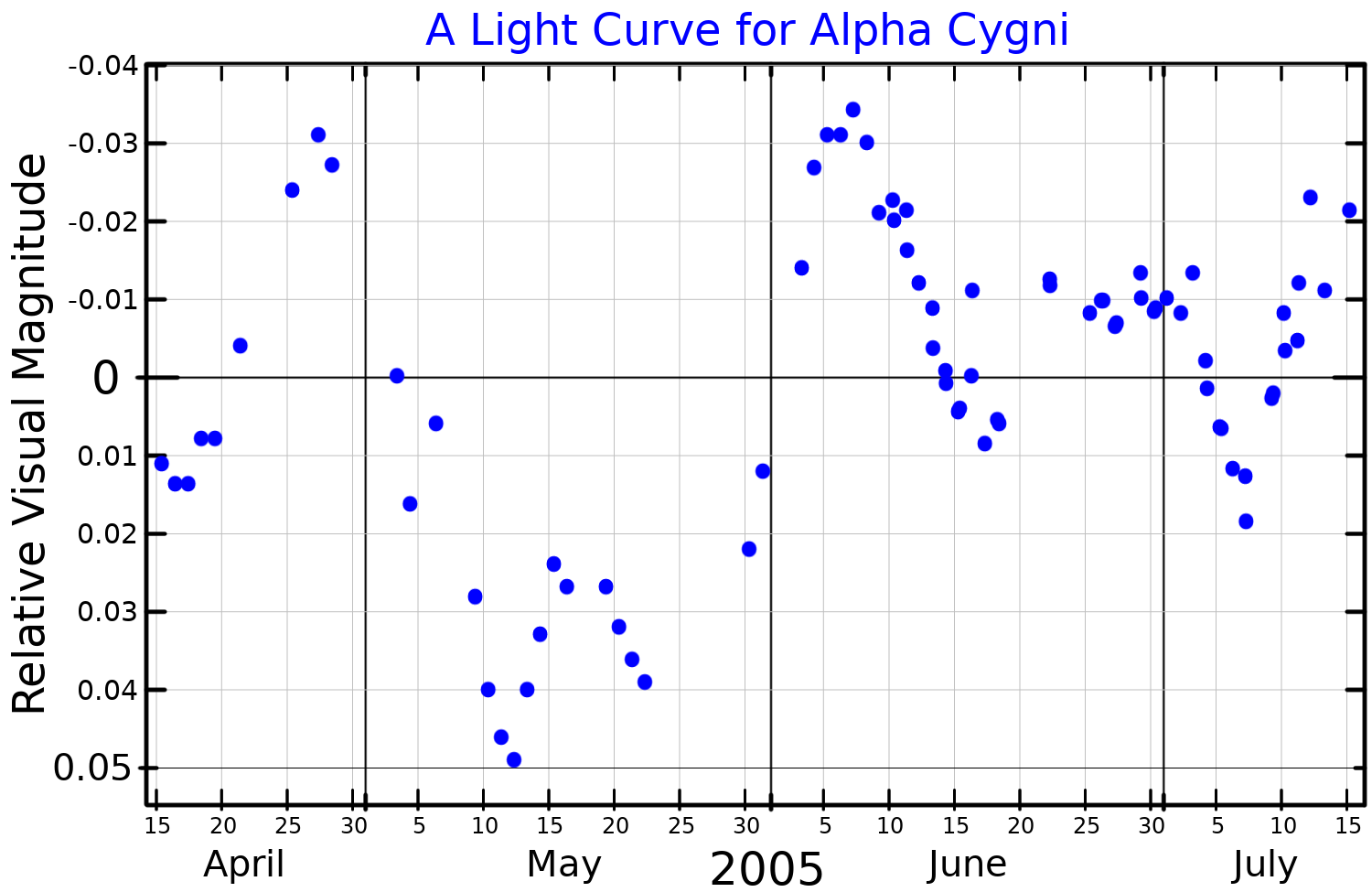alpha Cygni campaign
This STAROS campaign is dedicated to observing Deneb (alpha Cygni).
We invite you to take part by using your spectrograph in "high spectral resolution" mode to follow the temporal evolution of the Halpha line, located in the red part of the spectrum.
It may seem strange to propose an observing campaign on a star as familiar and bright (V=1.65) as Deneb. But more needs to be said. Deneb is a supergiant of spectral type A2Ia. Like all objects of this type, its surface is hot, close to 8400 K, and as the term "supergiant" implies, its radius is 200 times that of the Sun.
Beneath its innocuous, calm appearance in the summer sky, Deneb is in reality an active object when scanned with a spectrograph. Its atmosphere is subject to eruptive phenomena, sometimes very rapid (overnight evolution), sometimes slower (evolution over a few weeks), erratically, a priori.
Let's start to observe alpha Cygni together.


Credit Yüce and Adelman, New Astronomy Volume 66, January 2019
The eruptive phenomena cited in introduction, reflect mass loss and environmental changes. The light emission in the Halpha line (6563 A) is of particular interest here. This activity is the symptom of phenomena that it is essential to decipher in order to understand the physics of these unusually large stars. Deneb's brilliance makes it a good laboratory for studying the mechanisms at the surface of supergiants. This brightness has not prevented professional teams of astronomers from studying it.